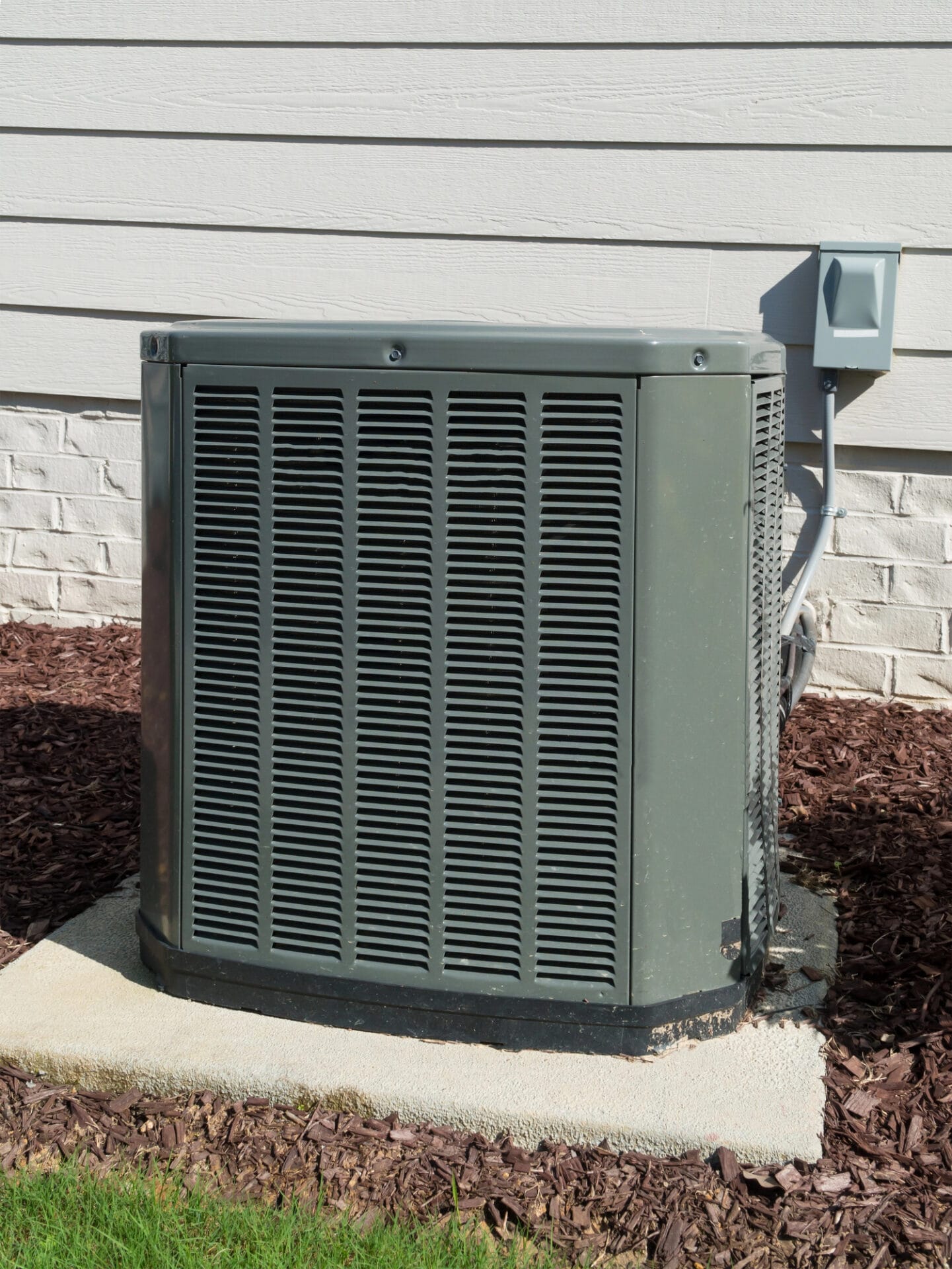
Heat pumps stand out as a beacon of efficiency in the realm of heating and cooling technologies. Heat pumps not only offer the dual benefits of heating and cooling but also stand as a testament to energy conservation, appealing greatly to those who prioritize environmental sustainability.
Compared to traditional electric systems, heat pumps are significantly more efficient. Embracing a heat pump not only eases the burden on your wallet through reduced energy costs but also positions you as a forward-thinker in environmental stewardship. Yet, beyond the allure of thriftiness, lies the deeper benefit of lessening our environmental impact. By opting for a heat pump over fossil fuel-based systems, you’re taking a step towards cleaner air quality and contributing less to global carbon emissions.
One might wonder how these devices manage such feats. The secret lies in their ability to extract heat energy from the surrounding air—even during cold climates—and use this source heat efficiently throughout the year. Whether it’s an air-source or ground-source unit, each type is designed with long lifespans in mind while requiring minimal maintenance compared to furnaces or central air conditioners.
In addition to being dependable HVAC solutions that can withstand power outages better than some other systems, heat pumps offer an eco-friendly alternative by avoiding dangerous pollutants like carbon monoxide—a common risk associated with burning fossil fuels indoors.
So whether you’re looking at installing a new system or upgrading your current setup, exploring more about heat pumps could be one of the best decisions for both your wallet and planet Earth.
Finding dependable HVAC services is not just about ensuring your heat pump installation goes smoothly; it’s also about securing efficient heating and cooling in your home. A professional installer brings expertise that can make or break the performance of your heat pump. Mastering the art of maximizing your heat pump’s performance hinges on their expertise, as professional fitting is key to unlocking its full potential.
Their skill set enables them to sidestep typical errors like choosing the wrong size or placing it in a less than ideal spot, actions that could drastically reduce your setup’s performance and durability.
A step-by-step approach during a professional pump installation begins with evaluating your home’s specific needs. In this phase, we mull over aspects such as the weather patterns of your area, the dimensions of your dwelling, and any pre-installed air conduits. Such an assessment ensures that you get a unit tailored to provide optimal comfort through efficient heating and cooling.
Next comes the actual install – laying down refrigerant lines, setting up outdoor units correctly, and making sure everything is sealed tight against leaks. Ensuring each step is meticulously followed is crucial in averting energy wastage, thereby guaranteeing that the energy expended on your heat pump directly enhances the coziness of your living space.
Last but not least, professionals will guide you through proper maintenance practices post-installation to keep things running smoothly over time.
Heat pumps are like the Swiss Army knife of your home’s HVAC system, offering both heating and cooling capabilities with a flick of a switch. They provide warm air during those chilly winter months and cold air when summer turns up the heat, ensuring year-round comfort without breaking a sweat.
Easily toggling between modes is one of the key features that make heat pumps so versatile. When you need to shift from heating to cooling or vice versa, it’s as simple as adjusting your thermostat settings. Switching modes effortlessly enables residents to keep their living spaces comfortably warm or cool, adapting swiftly to the whims of Mother Nature’s moods.
Ever wondered about the sorcery that enables our homes to switch from cozy warmth to refreshing coolness with just a simple tweak of the thermostat? In essence, heat pumps extract heat energy from outside air—even in cold climates—and transfer it indoors for warmth. Conversely, to cool your home, they reverse this process by removing indoor heat and releasing it outside. This dual-function capability means you can enjoy comfortable living spaces all year round without needing separate systems for heating and cooling.
This ability not only provides convenience but also translates into significant savings on utility bills since one efficient system does the job of two. Moreover, because they rely on extracting existing heat rather than burning fossil fuels, heat pumps have a lower carbon footprint compared to traditional furnaces or central air conditioners—a win-win for both your wallet and the planet.
Heat pumps, known for their dual heating and cooling capabilities, come with an initial price tag that can make some homeowners pause. But when you break down what you’re getting—an energy-efficient system capable of providing year-round comfort—the high upfront cost starts to seem more like a smart investment. Purchasing and installing a heat pump involves not just buying the unit but also ensuring your home is ready for this technology.
To help navigate these waters, seeking out dependable HVAC services is crucial. Expert technicians will provide a personalized quote, taking into account your home’s dimensions and the weather patterns in your area.
Saving money on utility bills is where heat pumps truly shine. By extracting heat from the surrounding air or ground instead of generating it through combustion, they use significantly less electricity than traditional heating systems. This means more money stays in your pocket each month, a boon for those keen on managing their household finances wisely.
In addition to immediate savings, investing in a heat pump means betting on long-term financial benefits. With their long lifespan and minimal maintenance requirements compared to furnaces or central air conditioners, heat pumps offer enduring value that far outweighs their initial cost over time.
Heat pumps shine in their role of elevating the air purity within your living spaces. Unlike traditional heating systems that burn fossil fuels, heat pumps work by transferring heat from the outside air or ground into your house. This process does not produce combustion gases, which means no carbon monoxide or other pollutants are released indoors.
Opting for a heat pump as your home’s heating solution is a pivotal step towards diminishing its carbon emissions. These systems require electricity but do not rely on burning fossil fuels directly. By using less energy and operating more efficiently than many conventional heating and cooling methods, they help lower overall carbon emissions associated with household energy use.
Amid escalating worries about climate change and the quest for environmental preservation, the shift towards more eco-friendly options in our homes has become increasingly vital. In fact, due to their efficient operation and reliance on renewable resources like the surrounding air or geothermal energy from beneath the earth’s surface, heat pumps provide clean and quality air without contributing significantly to global warming.
To understand better how these innovative devices contribute positively both environmentally and economically within our homes,
explore detailed insights about different types of heat pump technologies here.
Power outages can seem like a major hurdle for heat pump owners. These systems do require electricity to operate, which means when the power goes off, so does your heating or cooling. But it’s not all doom and gloom. Many heat pumps come equipped with features designed to minimize disruption during such events.
Choosing to invest in heat pump models that require little upkeep and are equipped with alternative power solutions can smartly mitigate these concerns. For instance, some modern units include battery backups or are compatible with generators to keep them running during a blackout.
Maintenance is another area where heat pump owners need to stay vigilant. While these systems boast minimal upkeep compared to traditional HVAC solutions, regular checks are essential for optimal performance. This includes cleaning filters and scheduling professional inspections at least once a year.
Investing in a heat pump is not merely adding another device to your household; it’s making a wise financial decision that pays off. They slash energy bills and keep you comfortable year-round. Remember, professional installation is key to unlocking the full advantages of heat pump installed at homes.
Think about it: efficient heating in winter, cooling in summer, all while being kind to the planet. That’s what heat pumps offer.
Opting for this change not only pockets you some extra cash but also elevates the breathability of your living space, all while distancing ourselves from dependency on ancient carbon sources.
So if you’re looking to cut costs and carbon emissions, think no further. The journey towards a more sustainable and comfortable living starts with understanding these benefits fully.
Leverage this technology today for a greener tomorrow.

2901 N Main Ave
Newton, NC 28658
Mon - Sun Open 24 Hours
No Overtime Charges
Call to Schedule Service
(828) 838-0973